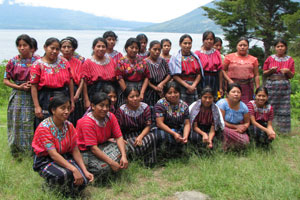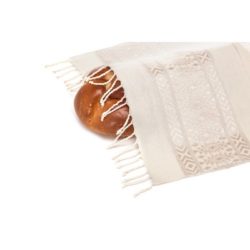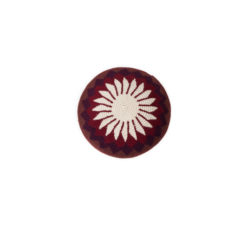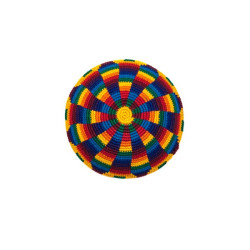
Maya Cakchiquel
In the small lake community of San Marcos, on the shores of beautiful Lake Atitlán in the central highlands of Guatemala, approximately 40 Maya Cakchiquel artisans work together to crochet MayaWorks’ handmade fair trade kippot or yarmulkes. This group began crocheting as a means to raise money for a community women’s health program. Now the women earn a steady income with the sales of their hand-crocheted products ranging from kippot to crochet Mary Janes. The women crochet to generate a steady income for themselves and their families. Each handmade yarmulke takes approximately 4 hours to create. Artisans are paid a fair wage for each kippah. They also receive additional benefits that align with MayaWorks’ fair trade principles such as literacy trainings, eye exams and eyeglass donations, skills and leadership trainings, low-interest microloans as well as scholarships for artisans' daughters to attend school.
Maya artisans began making crocheted kippot several years ago on the suggestion of a Jewish friend who visited the artisans and saw them crocheting hacky sacks. She said if the women can make hacky sacks they can make yarmulkes! After a few lessons in how to make the kippot rounded and shaped, the women set to work creating this new product. Some months later, MayaWorks realized the artisans were unsure of what they were creating. A discussion ensued that talked about religious customs, both Mayan and Jewish, and explained the use and meaning of the kippot. "The Maya women's creative designs and patterns have proved to be a perfect match for the kippot," says Jeannie Balanda, Executive Director of MayaWorks. "The women understand the religious significance of the kippot. They are a respectful culture and put a great deal of thought and care into the design and quality of the product."
Visit Artist's Website 



